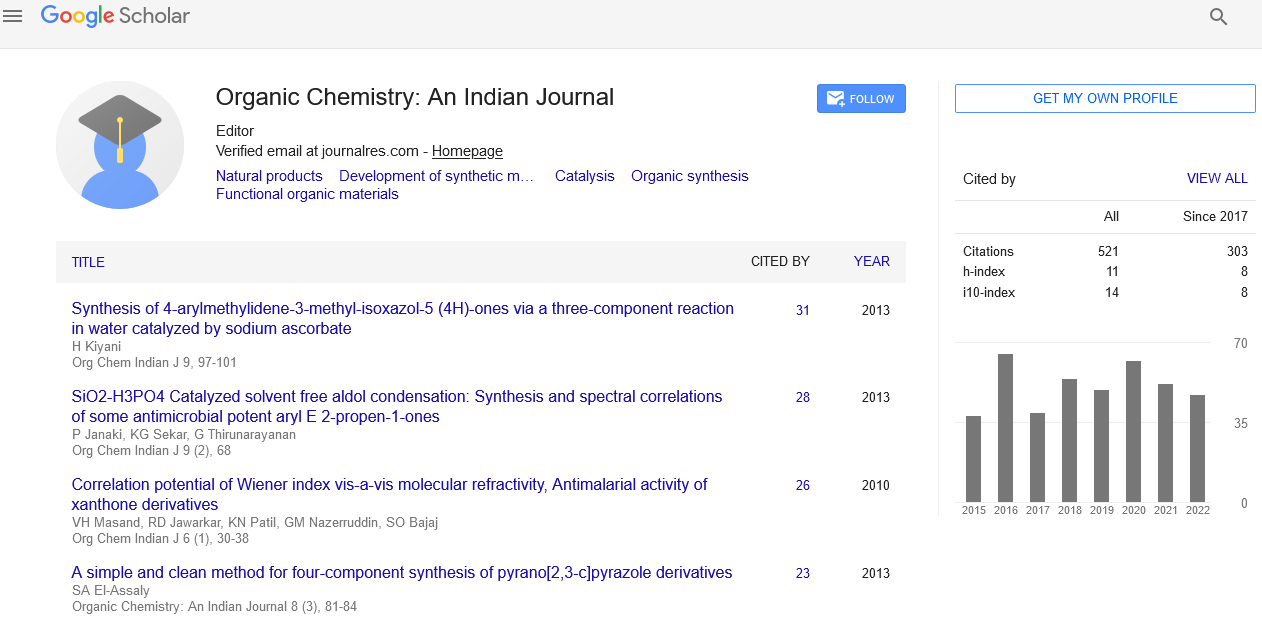Short commentary
, Volume: 17( 5)Plastic Waste Valorization
- *Correspondence:
- Belle Richard
Department of Organic Chemistry, Hampshire College, Hampshire, UK
E-mail: Richard_B@yahoo.com
Received date: June 06, 2023, Manuscript No. TSOC-23-101485; Editor assigned date: June 09, 2023, PreQC No. TSOC-23-101485 (PQ); Reviewed date: June 26, 2023, QC No. TSOC-23-101485; Revised date: September 28, 2023, Manuscript No. TSOC-23-101485 (R); Published date: October 05, 2023, DOI:10.37532/0974-7516.2023.17(5).002
Citation: Richard B. Plastic Waste Valorization. Org Chem Ind J. 2023;17(5):002.
Abstract
Given that they may be used to create fertilizers, fuels, chemicals, and a variety of materials for packaging, housing, transportation, and clothing, wastes are seen as important feedstock in the circular economy. The fact that plastics account for a sizable amount of the waste produced by our civilization today is a serious problem. Since plastics are primarily made of synthetic polymers that are resistant to disintegration, when they are abandoned, they are more likely to build up in landfills or the atmosphere. Plastics' economic worth is diminished because not all of them can be recycled. Plastics have the capacity to emit hazardous compounds that are bad for both the environment and human health.
Keywords
Fertilisers; Hazardous; Depolymerization; Thermal maturity; Hydrocarbons
Description
Our daily lives are filled with plastic products, which made up over 360 million tonnes of the world's plastic manufacturing in 2018-more than 60% of which were thrown away. Therefore, plastic contamination is significant because it causes micro plastics to end up in the soil, oceans, crustaceans, and rain.
By chemically converting plastic trash into reusable building blocks, one solution to these problems would be to reduce the carbon footprint of the chemical sector. By requiring, first and foremost, the careful design of efficient and regulated depolymerization procedures, the method enriches the concept of plastic recycling. Despite this roadblock, establishing effective value chains for plastics that focus on recovery, reprocessing, and upgrading will be a practical method to turn a challenge into an opportunity.
Where mature technology is available, a waste-to-products strategy is already in place for polymeric animal and plant biomass waste. There aren't always clear definitions when discussing polymers in general, which might cause misunderstandings between terminology that are frequently used interchangeably but aren't. The IUPAC guidelines are a useful reference for this objective. Thus, "degradation" is a broad term that describes the "progressive loss of a substance's performance or characteristics" brought on by chemical (acids, air, halogens, solvents), physical (heat, light), or both causes. Examples of polymer qualities that can be changed by altering the chemical composition include tensile strength, colour, and form (e.g., as a result of oxidation, cross-linkage, or bond cleavage). According to the definition of biodegradation, it is "degradation caused by enzymatic processes as a result of cell action." Although the term "biodegradable" is occasionally used to describe synthetic polymers, it actually refers to bio related polymers (such as proteins, nucleic acids, and polysaccharides) that are "susceptible to degradation by biological activity by lowering of macromolecule molar masses".
As a result, in this context, "chain cleavage" and "degradation" are used interchangeably. In this editorial, the "process of transforming a macromolecule into (recoverable) monomers or a mixture of monomers" is referred to as "depolymerisation" rather than "biogradation" to prevent any ambiguity. Another helpful phrase is "bioplastic," which is defined as a "bio-based polymer derived from biomass or issued from biomass monomers," where "bio-based" implies "composed of or derived in whole or in part from biological products issued from biomass." Further, there is no commonly acknowledged definition of "compostable" because different issuers have different definitions. Study from the European commission establishes standards such disintegration (i.e., material breakdown into defined-size particles), biodegradability, and the lack of adverse effects. The definitions of the word "recycling" are ambiguous and change depending on the source and year. Additionally, plastics producers have made available their own set of rules.

